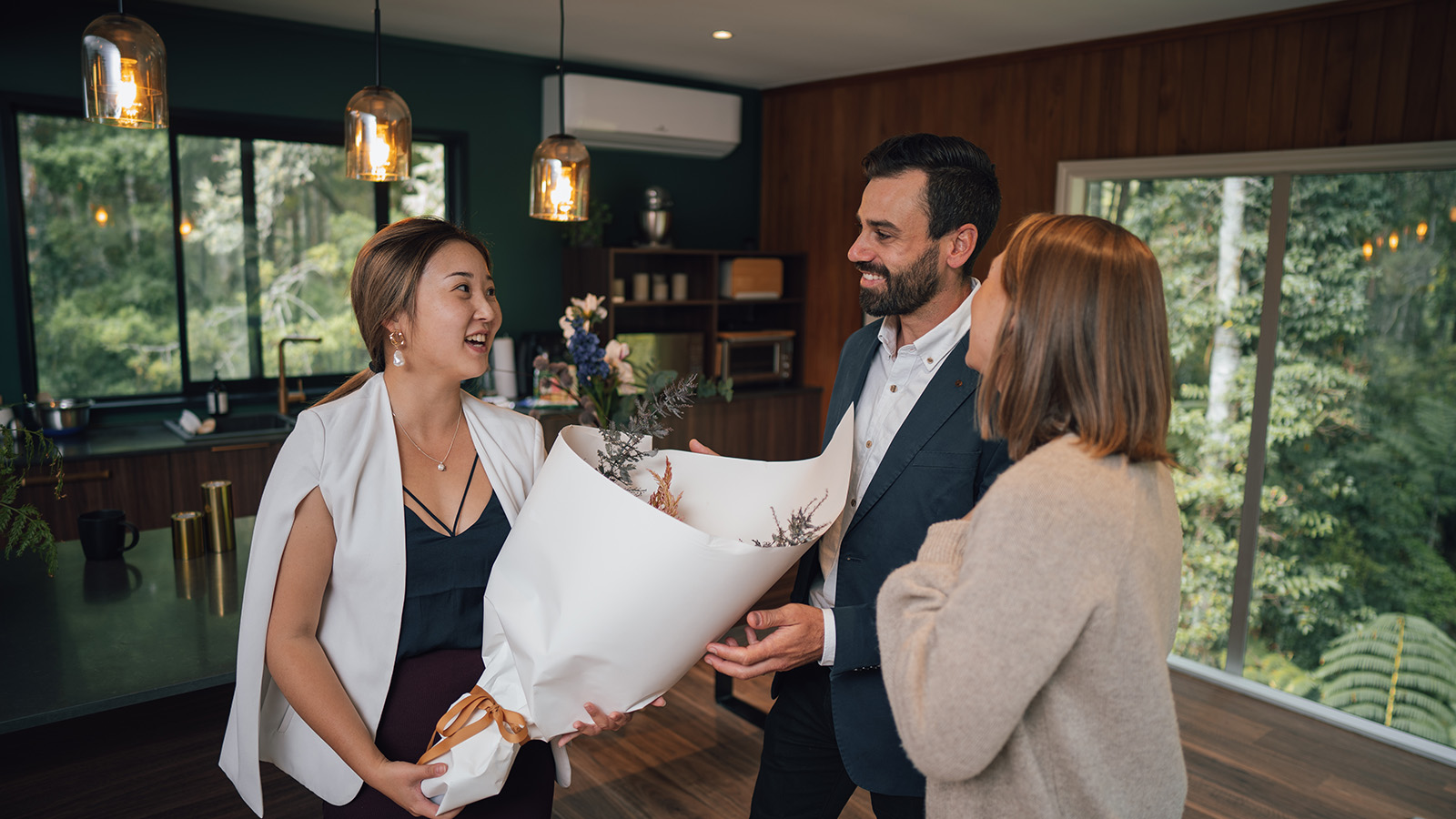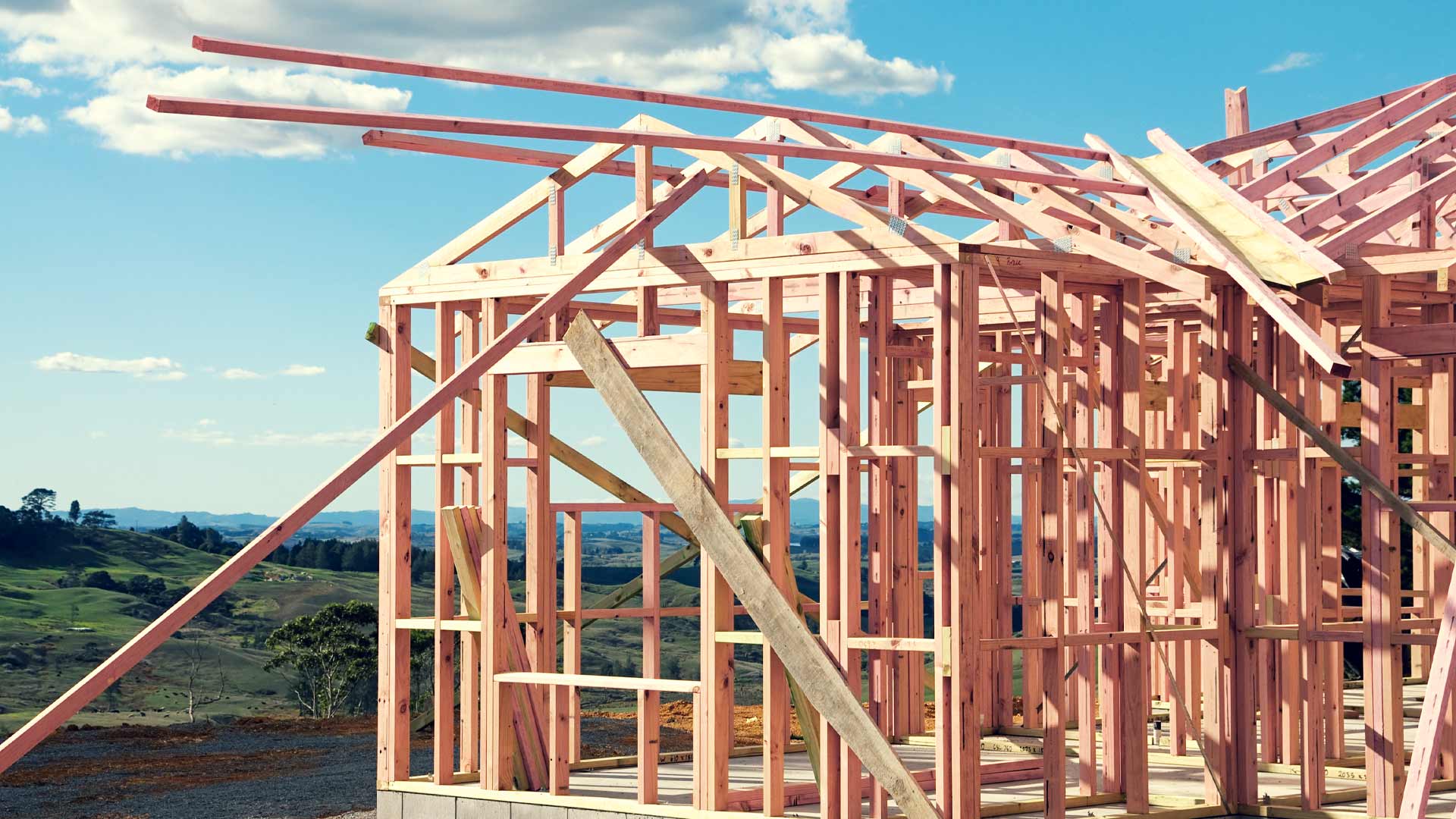Buying guide
Alternative homeownership: Support for low deposit buyers
Learn about schemes designed to help low deposit buyers get on the property ladder.
6 June 2023
As the price of homes has gone up at a greater pace than salaries over the past few years, buyers need all the help they can get to buy their first home. And if you can share the load with another party for a period, why wouldn’t you consider it?
Here are some schemes available for low deposit buyers in New Zealand:
- Kāinga Ora First Home Partner scheme
- NZ Housing Foundation shared ownership
- YouOwn shared ownership
- Squirrel Launchpad home loan
It’s widely acknowledged that housing affordability and that almighty house deposit in Aotearoa New Zealand is a hurdle too far for many Kiwi. As a result, a number of government and charity organisations are stepping in to fill the gap for those who don’t have the bank of Mum and Dad as an option to supplement their deposit and get them over the line. In these schemes, you initially share the ownership and then you buy the partner out over time. Here’s a little bit about each one, who’s eligible and how they work.
The Kāinga Ora First Home Partner scheme
With this form of shared ownership, Kāinga Ora, a crown agency, purchases the brand new home with you, and the idea is you’ll buy the share held by Kāinga Ora over time while remaining the majority homeowner and occupier. You’ll be expected to contribute a minimum of 5% of the purchase price.
How it works:
It may be that you’ve saved 10% to purchase a property and you’ve found a bank prepared to lend you 75%. Kāinga Ora then steps in and contributes 15% to complete the deal and retains a 15% ownership of the home until you buy them out. Their name will be on the title along with yours until that time.
Kāinga Ora's maximum contribution towards a home purchase is 25% or $200,000, whichever is lower. Kāinga Ora will confirm exactly how much they’ll contribute towards the home purchase once you’ve received and shared your pre-approved home loan from the lender.
Sound pretty good?
You’ll have to meet the eligibility criteria first. You must:
- Be over 18 years old
- Be a New Zealand citizen, permanent resident or a resident visa holder who is “ordinarily resident in New Zealand”
- Or be applying with someone who meets the citizenship or residency requirements and you are either married or in a civil union or de facto partnership with that person
- Have a total household income before tax of no more than $130,000
- Have a good credit rating as proven in a credit report
- Be a first home buyer
- Not previously have had shared ownership support from Kāinga Ora
This home will be your main place of residence and you’ll have to commit to living there for at least three years from the settlement date.
Only certain homes are eligible for the First Home Partner Scheme.
The property will need to fit the criteria too. It must be:
- A brand new build, never occupied before and with a code compliance certificate (CCC) within the previous 12 months.
- It may have been purchased ‘off the plan,’ the house and land purchased together in a single Sale and Purchase (First Home Partner doesn’t support schedular payments or construction loans).
- Habitable from the date of settlement from the relevant completion date once the CCC /title has been issued.
- Assessed in accordance with the bank’s own credit standards.
Kāinga Ora will look at your circumstances and the areas you’re interested in buying a property and guide you in finding a suitable home for your needs. Once you’ve found a property, you’ll contact them to confirm the property satisfies all the conditions and start the process of co-purchasing the home. Kāinga Ora works with a number of banks in the First Home Partner Scheme including Westpac, BNZ, Kiwibank and SBS Bank.
You’ll fill out a Shared Ownership Agreement outlining the details of the shared ownership which will include your:
- Rights and responsibilities as the majority homeowner and Kāinga Ora as a “tenant in common” co-owner.
- Your obligation to do your utmost to buy the share in the home owned by Kāinga Ora within 15 years of the settlement date.
- Your responsibilities regarding upkeep and maintenance of the home.
- Requirements to seek proper approval from Kāinga Ora for any improvements or renovations to the property.
- The process, when selling the property for getting valuations, and the responsibility of any costs incurred.
- When the relationship with Kāinga Ora will end and the agreement.
New Zealand Housing Foundation shared ownership
This charity helps people buy a majority share in new houses within New Zealand Housing Foundation developments, which are largely in Auckland and Tauranga at the moment. The buyer will typically have a majority share, say 60% or more, with the Housing Foundation owning the remainder. In the programme your mortgage payments are no more than 30%.
How it works:
Both of you are on the title and it’s expected most households are able to buy out the NZ Housing Foundation within seven to 10 years. Your income cap is $95,000 and your deposit will come from your savings, KiwiSaver and a mortgage. When you move on, you can either sell your share back to the Housing Foundation, based on an independent valuation, or you and the Housing Foundation can sell the property on the open market and share the proceeds according to the proportion of ownership - 60% / 40%, for example.
The houses are in locations where the Housing Foundation is building now and in the near future.
The Housing Foundation will help with the mortgage application process, working with major banks to support their programme. Each time you apply to buy additional shares in your property over the years, you will pay an application fee for a new valuation and administration costs. The final purchase of 15% is done in one transaction. The Housing Foundation charges an annual management fee to cover operational overheads.
In order to apply you need to be:
- A New Zealand citizen or permanent resident
- A first time home buyer
- Have at least one member of the household in a full-time job
- Have manageable debt
- Have a deposit
- Have a combined household income of $85,000 to $110,000 gross before tax
YouOwn shared ownership
YouOwn is a privately-funded organisation offering shared ownership to first time buyers.
Two of its founding directors were senior leaders at the New Zealand Housing Foundation, one launching the foundation’s shared ownership programme. YouOwn is funded by the YouOwn Housing Limited Partnership, and Bancorp Wealth Management. The private company stresses it is independent of any builders, real estate agents or home loan lenders and there’s no income cap or eligibility criteria specified by the Government. It is registered on the Financial Service Providers Register.
Co-ownership helps people who don’t fit mainstream mortgage criteria, says YouOwn.
It gives the example where you have a 5% deposit and you then top up with YouOwn’s contribution of 15% to get to a 20% deposit required for regular retail lending without having to resort to a second tier lender. YouOwn will only ever own 10% – 25% of the property.
As majority owner you’ll pay a charge on the portion that YouOwn owns and after five years you can buy the share owned by YouOwn (at an independently assessed market value). Throughout, you’ll have all the rights of ownership and, subject to compliance with relevant law, you’re free to alter and maintain the house as you want. Together you and YouOwn will own the property as “tenants in common” and as the main owner, you’ll be responsible for all the usual ownership costs including rates, maintenance and insurance. And, until you buy out YouOwn, you’ll pay an equity charge of 5.95% (current rate) on the money they have invested in the property.
What makes you eligible:
- You need to be a NZ citizen/permanent resident
- You need to have a steady household income of around $130,000 or above the median in your location
- You’ll have less than $15,000 in debt and a clean credit history
- You will have been contributing to KiwiSaver for three years
- You’ll need a 5% deposit from savings or KiwiSaver
- You need to be buying the property to live in
Squirrel Launchpad home loan for those high on income, low on deposit
Squirrel, the mortgage broker and lender, launched this financial product in 2021 for those who earn plenty but can’t get the 20% deposit together preferred by banks and lenders. And for whom Kāinga Ora isn’t an option because of the income and house price caps.
To qualify, you have to be:
- A first home buyer who intends to live in the property
- You have to have a 5% genuine saved deposit including KiwiSaver
- And to be on PAYE or a fixed term contract for at least a year
- The property you buy should be in a metro location, i.e., no lifestyle blocks
The deposit amount you have to accumulate will depend on the house price. For properties with a price above $800,000, you’ll need more than a 5% deposit because the maximum equity loan amount Squirrel is able to lend with Launchpad is $120,000.
The mortgage broker/lender breaks the loan up into two parts – the base loan and the equity loan. The base loan is 80%, the bulk of the loan, and it’s set up as a choice of a floating or fixed interest rate with a 30-year term. Payments start off as interest only so the buyer can focus on paying off the smaller, more expensive equity loan first.
The equity loan is up to 15% and it’s peer-to-peer funded. As Squirrel puts it, it’s a bit like getting help from your parents but without any awkward conversations. You can make extra payments on this five year loan at any time at no extra cost because you want to get rid of it faster. The interest rate is currently set at 9.95% in May, 2023 (interest rates are subject to change).
*We hope this article has provided some helpful information. It's based on our experience and is not intended as a complete guide. Of course, it doesn’t consider your individual needs or situation. If you're thinking about buying or selling a property, you should always get specific advice.
Author
Other articles you might like


